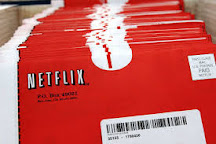AI, also known as Artificial Intelligence, has completely changed the world. Not only has it improved our knowledge and technology, but it is now taking over jobs and completely changing the way things are done. As a college student, AI has completely changed the way homework and assignments are done, and the biggest one has affected numerous honor code violations. “AI use was detected in about 1 out of 10 assignments, while only 3 out of every 100 assignments were generated mostly by AI.” Although there are so many benefits of AI, there have also been many downfalls in the knowledge and effort students/workers put into work.
The start of AI was a game that Southwest Asia saw as a sports spectacle called Alpha Go, which is a game that essentially teaches itself. It was sought to be the deep learning intelligence, where the machine fed games and would study and learn these games, creating moves the human brain can't even fathom to comprehend or understand. Alpha Go is what opened up the people's perspective to how big AI could change our lives.
China took this opportunity with Alpha Go and knew that this was the way they would change the world and, eventually, beat the US in e-commerce. “We will catch up to the US by 2025 and rule the world in 2030.” It's not even 2025 yet, and they have completely beaten the US with the technology AI has created for them. They are the start-up of phones, which has been extremely helpful to the start-up of AI. Almost all their currency is facial recognition, and so many amazing features the US has never come close to.
So that's also the past, but what about the future we know AI is getting more and more prevalent and becoming bigger than anything anyone ever imagined, but how is this gonna affect the human population? AI can do certain jobs better than the smartest human in the world. It will completely disturb and destroy the labor force. There are certain jobs AI can’t do; it is said that AI will replace white-collar jobs faster than it will blue-collar jobs for multiple reasons. White-collar jobs can easily be replaced by software and can make the work environment go faster and smoother. At the same time, blue-collar jobs involve hard work, labor, strength, and hand-eye coordination. AI is way more designed to be a robot for reading, programming, or even organizing, not building, moving equipment, or construction. All of these factors are things I see every day, people losing jobs because why pay a person to do it when AI can do it 10 times faster and better?
As a college student in a Marketing major, I do worry about the things AI can improve on and soon take over my job. AI is getting more advanced every single day, and yes, I love AI if I need a quick fact check or maybe I need an answer really quick. Counterjack that, I don’t believe it is making the human nation smarter, it is a way to cheat the system. If you need an email written, just type it into Chat GPT, if you need an essay or report due by the end of the night, easily write the prompt and send it in. AI has made the younger generation more lazy.





















